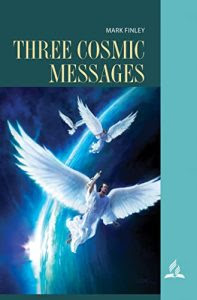Memory Text: “And the dragon was enraged with the woman, and he went to make war with the rest of her offspring, who keep the commandments of God and have the testimony of Jesus Christ” (Revelation 12:17, NKJV).
The theme of Revelation is this, “Jesus Wins, Satan Loses”.
Though (humanly speaking) we seem to be outnumbered by our foe the devil in the
life and death battle, Satan will lose and Jesus will win.
What is the reality of free will and free choice in the Great Controversy?
Love is not forced, hence the need for free will. God
bestowed upon us the power to choose from the beginning, in the context of the
Great Controversy between good and evil, there is no middle ground, we either
by our power choose to be on God’s side or on the Devil’s (see Luke 11:23).
However, the incredibly good news is the fact that we know who is going to win,
making it easier to choose.
What do the Dragon, Woman, Male Child, and Rod of Iron represent in
Revelation 12?
The Dragon represents Satan, The Woman represents God’s Church,
The Male Child represents Christ and the Rod of Iron is a symbol of an
unbreakable, all-powerful, invincible rulership.
What is the reality of the conflict between good and evil?
Though faced with every temptation we experience, Jesus came off as a Conqueror. Jesus defeated the devil on Calvary’s cross,
anyone who accepts Him is victorious too.
What happens after accepting Christ?
“When we accept by faith what Christ has done for us, our
sin debt is canceled and our sins are forgiven. We stand perfect before God,
covered in Christ’s righteousness.” We become Victors in Christ.
What encouragement do we get from Christ’s victory?
‘Although the battle still rages on earth, Satan has lost.
Period.’
What assurance of Christ’s victory is given us in Revelation 12:11?
The passage tells us that we can overcome too by the “blood
of the Lamb”. We have to accept by faith what Christ has done for us, when we
do so, our debts are canceled, and we stand perfect in the sight of God. Our
sins are forgiven.
What is the background of “the woman in the wilderness”?
The woman, as we know, represents God’s Church. Revelation 12
goes on to tell us that this woman who represents God’s church was persecuted,
but amidst these persecutions, God’s care was not absent. The persecution of
God’s faithful people is an extension of the controversy between good and evil.
The Faithful people are persecuted because they choose to “keep the commandments
of God and have the testimony of Jesus Christ” (Revelation 12:17, NKJV). At the
time of reformation, men and women were faced with this choice.
What fascinating and extremely encouraging expressions of God’s care can be
seen in Revelation 12?
‘Revelation 12:6 uses the expression, “a place prepared by
God” (NKJV). Revelation 12:14 declares that the woman was “nourished” in the
wilderness, and Revelation 12:16 declares, “The earth helped the woman.” At
times of severe persecution, God provides for His church.’
What are the characteristics of God’s remnant as found in Revelation 12:17?
The remnant are a people who keep the commandments of God and have the testimony of Jesus Christ.
Where is the center of earth’s last war?
Earth’s last war is centered in the minds of God’s people
scattered all over the world.
What is the reality of this final war?
There is no neutral ground, we all have to make choices, and the
battle is between two opposing forces. The central question is “who has our
loyalty? Where is our allegiance”. Only through Jesus can we be saved, we choose
to partake in the victory of Christ by accepting what He has done for us by
faith, this faith leads to obedience.
In Conclusion,
‘Christ has never lost a battle with Satan, and at the end
time. His people will be victorious. Whatever trials we face, God is there to
carry His people through triumphantly.’ I pray that God helps us to remain
faithful in Jesus’ name.




